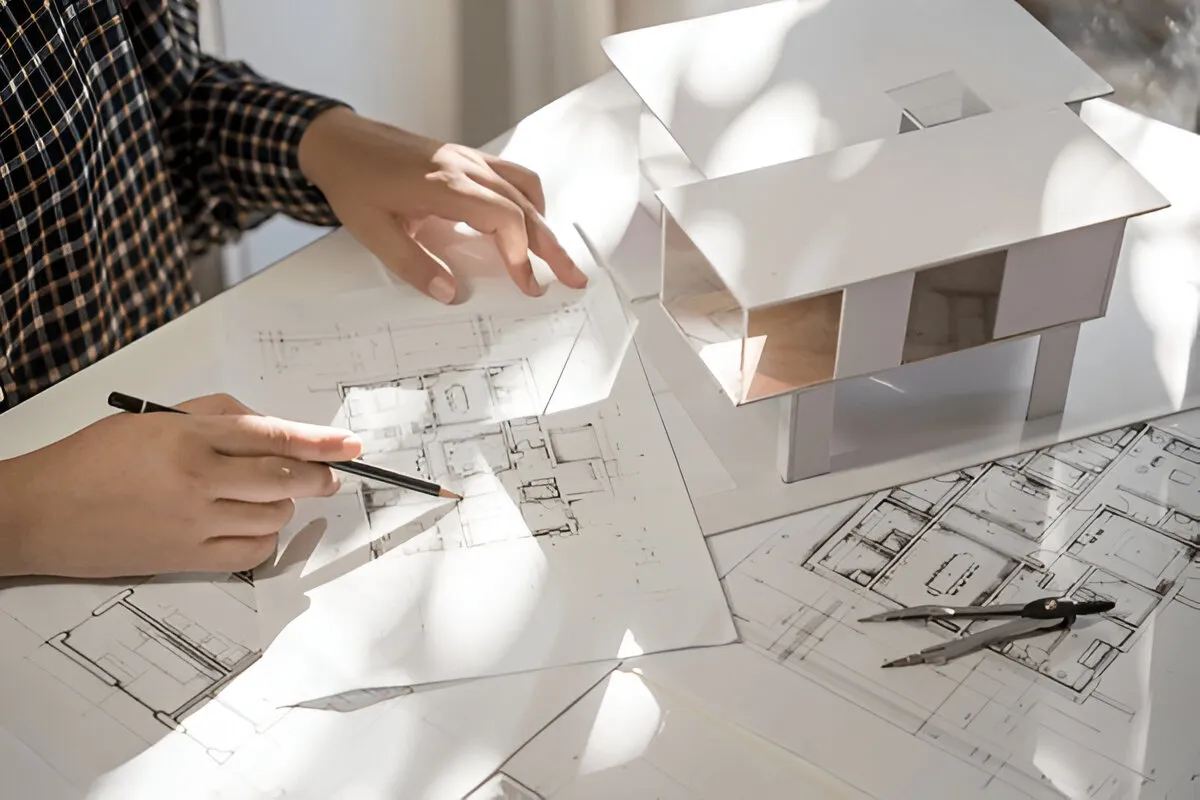Table of Contents
Key Takeaways:
- Discover the latest trends in modern residential construction.
- Understand sustainable building practices and their benefits.
- Learn about innovative materials and technologies in the industry.
Introduction to Modern Residential Construction
The residential construction landscape is dynamic, continually reshaped by technological advancements and evolving consumer expectations. In today’s era, a modern home transcends conventional shelters, transforming into an expression of personal lifestyle and eco-friendly values. These homes are reflections of a commitment to sustainability and innovation, offering occupants more than just a living space.
The drive to innovate is not just about aesthetics but involves a holistic approach to building. As preferences shift towards homes that resonate with individual values and environmental consciousness, construction methodologies adapt, bringing to life functional and stylish residences.
Innovative Design Trends
Modern residential construction is heavily influenced by changing tastes in design, driven by an increasing need for adaptable and livable spaces. Companies like Snyder Construction exemplify the industry’s adaptability, merging cutting-edge designs with sustainable practices. Open floor plans are widely favored for promoting flexibility, fostering a seamless flow between different living areas. This architectural style breaks away from segmented rooms, encouraging a more fluid movement and creating a spaciousness that aligns with contemporary lifestyles.
Moreover, there is a growing emphasis on integrating the indoors with the outdoors. Homes are now designed with large windows and sliding doors that extend living spaces outside, connecting to nature and enhancing natural light within interiors. This trend boosts aesthetic appeal and builds a healthier living environment.
Sustainable Building Practices
At the core of today’s construction innovation is sustainability. As environmental concerns intensify, builders increasingly employ sustainable building techniques focusing on renewable resources and eco-friendly materials. Such practices lessen environmental impact and provide tangible benefits to homeowners, such as reduced utility expenses and higher property value.
Sustainable construction is a multifaceted approach. It involves harnessing solar and wind energy, using recycled materials, and ensuring efficient energy consumption. Each decision in the construction process reflects a commitment to preserving natural resources while delivering long-lasting and durable homes.
Advancements in Construction Materials
The material aspect of construction is seeing revolutionary changes as the industry strives for improved efficiency and environmental responsibility. Materials like cross-laminated timber offer both strength and sustainability, reducing buildings’ carbon footprint significantly. High-performance concrete is another innovation that provides enhanced durability and energy efficiency and thus prolongs the life of modern residences.
These advanced materials represent a shift towards a more sustainable construction future. They improve not only the structural integrity of homes but also their thermal efficiency, reducing unwanted heat exchanges and contributing to energy savings.
Smart Home Integration
Rapid technological advancements have led to the rise of smart homes, where automation is pivotal in enhancing living environments. Homeowners increasingly prioritize homes with built-in intelligent technology systems like automated lighting, security surveillance, and climate control, ensuring energy efficiency and overall convenience.
The integration of innovative technologies transforms houses into responsive environments. These upgrades are more than just technological indulgences; they allow residents to manage their energy use more effectively, ensure safer homes, and enjoy increased comfort.
Also Read: The Essential Guide to Urban Construction Permits and Their Impact
Managing Construction Projects Efficiently
Effective management is crucial for realizing a construction project’s complex vision. By utilizing advanced project management tools and methodologies, construction teams can streamline processes, mitigate delays, and assure quality. These systems foster improved communication, enabling seamless coordination and control over various project elements, such as time and resource allocation.
Such modern approaches to project management enhance efficiency and safeguard the project from pitfalls, delivering results that adhere to both timeline and budget constraints.
Overcoming Common Challenges in Residential Construction
While the industry is advancing, it has challenges. Common issues like labor shortages and budget constraints can impede progress. To tackle these obstacles effectively, it is essential to implement clear communication strategies and hire skilled workers. Additionally, employing technology-driven solutions has proven to significantly mitigate these issues by enhancing productivity and precision.
By leveraging technology, the industry can improve project outcomes, address common frustrations, and open up new possibilities for efficiency and innovation.
Future of Residential Construction
The future of residential construction is brimming with potential, driven by technologies like modular building techniques and 3D printing. These advancements promise to significantly cut down construction time and costs, paving the way for more affordable housing options. As these technologies evolve, they redefine construction processes, leading to a more efficient, sustainable, and adaptive industry ready to meet future demands.
Ultimately, the aim is to continually enhance the livability, sustainability, and affordability of homes while responding to the diverse needs of future generations.




